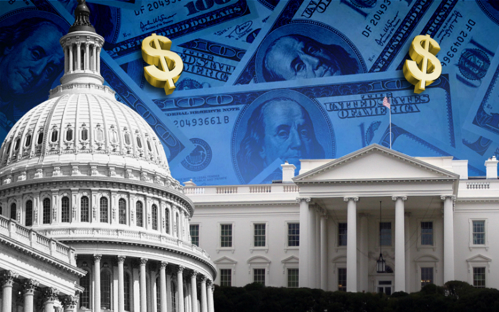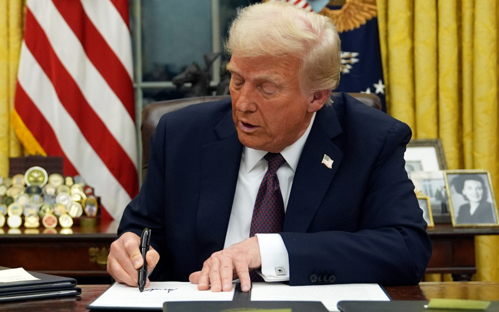President Trump’s executive order cutting federal funding to NPR and PBS has ignited a fierce legal and political firestorm. NPR and three public radio affiliates have responded with a federal lawsuit, alleging that the May 1 order amounts to unconstitutional retaliation for unfavorable coverage and a violation of congressional authority over public funds.
On the surface, this may appear to be yet another battle in Trump’s long war with the media. But at its heart, this controversy reflects a deeper constitutional failure – one that Congress alone is equipped to solve.
The legal stakes
 On the one hand, NPR raises legitimate concerns. While it receives federal support, NPR is not a government entity – it is a private nonprofit media organization. That distinction matters. The First Amendment’s protections against viewpoint discrimination apply to private actors, and the Supreme Court has repeatedly held that the government may not withhold funding simply to punish disfavored speech. The lawsuit points to evidence that the executive order was motivated not by fiscal prudence or neutral policy, but by political retaliation – what NPR calls a “textbook” First Amendment violation.
On the one hand, NPR raises legitimate concerns. While it receives federal support, NPR is not a government entity – it is a private nonprofit media organization. That distinction matters. The First Amendment’s protections against viewpoint discrimination apply to private actors, and the Supreme Court has repeatedly held that the government may not withhold funding simply to punish disfavored speech. The lawsuit points to evidence that the executive order was motivated not by fiscal prudence or neutral policy, but by political retaliation – what NPR calls a “textbook” First Amendment violation.
Further, the president does not have unilateral authority to nullify congressional appropriations. Under the Constitution’s Appropriations Clause, only Congress may decide how federal funds are spent. The Corporation for Public Broadcasting (CPB), which serves as the conduit for public media funds, was created by statute to operate with a degree of independence, precisely to insulate NPR and PBS from political interference. If the executive branch can cut off those funds based on perceived political bias, then the firewall Congress intended to build has crumbled.
But the administration’s defenders have their arguments too. They contend that NPR and PBS have strayed from their mission of objectivity and are effectively subsidizing progressive activism with taxpayer dollars. The CPB’s founding statute does require balance and objectivity, and critics argue that NPR’s coverage repeatedly violates that standard. Moreover, the executive branch retains some discretion in how federal agencies administer grants – especially when appropriations are broadly framed or conditioned.
That said, the White House’s legal position is far from ironclad. If this case proceeds, courts are likely to scrutinize not just the content of NPR’s programming, but whether the executive order constitutes a constitutionally impermissible use of presidential power to suppress dissenting views.
The real problem: Congressional abdication
 This conflict was avoidable. Congress created public broadcasting. Congress appropriates the funds. And Congress has the power to reform – or defund – it.
This conflict was avoidable. Congress created public broadcasting. Congress appropriates the funds. And Congress has the power to reform – or defund – it.
President Trump, like many before him, is trying to advance a political agenda with the only tools left available to him: executive orders and administrative action. That’s a dangerous pattern … not because his instincts are necessarily wrong, but because it invites judicial intervention and stretches the Constitution’s separation of powers to its breaking point.
If the American people no longer want their tax dollars subsidizing what they perceive as partisan journalism, Congress should take that debate seriously and act through legislation. Conversely, if public broadcasting is worth preserving, it should be protected by statute, not by emergency litigation.
But what we cannot allow is for the presidency – Republican or Democrat – to become a backdoor legislature. That path leads not only to legal uncertainty, but to the very kind of arbitrary government the Constitution was written to restrain.
Conclusion
 The NPR lawsuit raises hard questions about free speech, executive authority, and the future of publicly funded media. But it also shines a light on a more basic failure: when Congress refuses to govern, presidents are tempted to overreach.
The NPR lawsuit raises hard questions about free speech, executive authority, and the future of publicly funded media. But it also shines a light on a more basic failure: when Congress refuses to govern, presidents are tempted to overreach.
Rather than force courts to decide the limits of presidential retaliation or executive discretion, lawmakers should reclaim their authority and make public broadcasting policy clear. If Congress won’t draw the lines, it has no one to blame when presidents redraw them instead.
Notice: This column is printed with permission. Opinion pieces published by AFN.net are the sole responsibility of the article's author(s), or of the person(s) or organization(s) quoted therein, and do not necessarily represent those of the staff or management of, or advertisers who support the American Family News Network, AFN.net, our parent organization or its other affiliates.








